From 14 to 16 June 2021, more than 400 participants from 50 countries and over 70 speakers and panelists gathered online for the 3-day European Marine Observation and Data Network (EMODnet) Open Conference to discuss EMODnet achievements, partnerships and vision for the coming decade. The timing for this event could not be better, with 2021 as ‘super year’ for ocean, biodiversity, ecosystem, environment and climate with the official kick-off of the UN Decade of Ocean Science for Sustainable Development, the recent 47th G7 Leaders’ Summit, related Climate & Environment Ministers meetings and Science & Technology dialogues.
The need for high quality open data from the marine environment and related human activities has never been greater, and since 2009, EMODnet has developed into a mature, operational data service, becoming a global leader in marine data management and sharing, providing essential marine knowledge brokerage and open-access to the most comprehensive in situ marine datasets. Bringing together many EMODnet partners, data providers, users and stakeholders from Europe and beyond, the Conference was all about celebrating existing partnerships, connecting with new and emerging marine and maritime sectors stakeholders, highlighting the added value of EMODnet for society and looking ahead to co-design EMODnet’s next phase. The event was ably moderated by Paul Rose - National Geographic Pristine Seas Expedition leader, Broadcaster and a well-known public figure in the field of environment and exploration.
With more than 45 presentations and panels, the event was divided in 6 sessions, in addition to breakout group discussions and the presentation of about 55 community posters and pitches. A virtual exhibition, open until October 2021, was also an integral part of the event, with its rich content and information on the diverse activities of EMODnet, resources and services, as well as those from related initiatives.
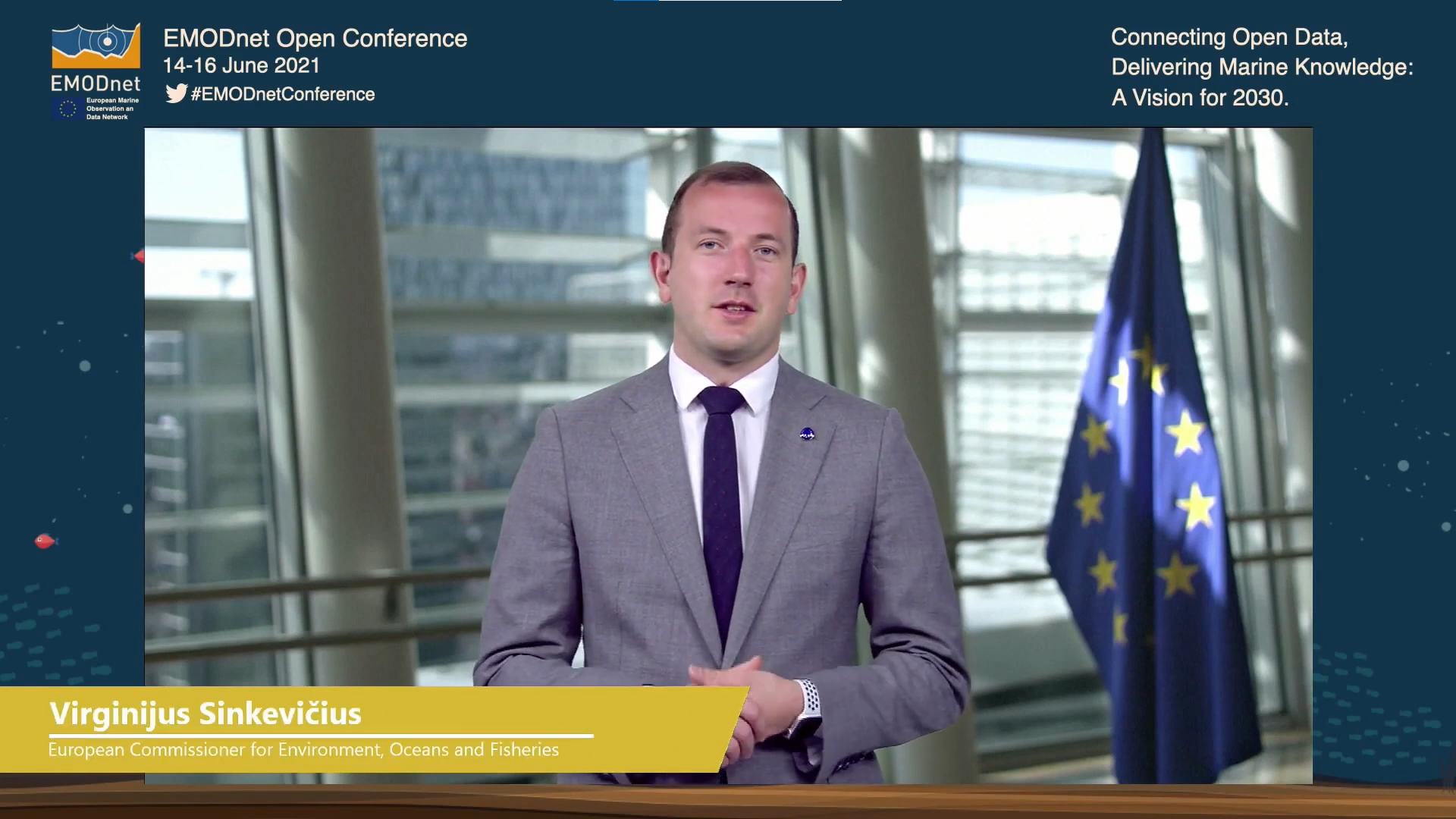
EMODnet has become a reference - not just in the EU but globally - and its importance will only grow in the future as marine knowledge is at the core of our fight against climate change [...], at the centre of conserving the invaluable marine biodiversity [...] and is the key to unlocking the potential of the Blue Economy in line with the European Green Deal and the digital transition
Virginijus Sinkevičius, European Commissioner for Environment, Oceans and Fisheries, during the Conference opening session
Reflecting on the past decade of achievements, Jan-Bart Calewaert, Head of the EMODnet Secretariat noted that “EMODnet has seen a tremendous evolution and enormous growth in the amount of data and products provided, but also in the number of interested users. In 2020 for example, the Central Portal alone attracted over 26,000 more unique visitors than the year before, and the user-demand continues to rise and diversify.”
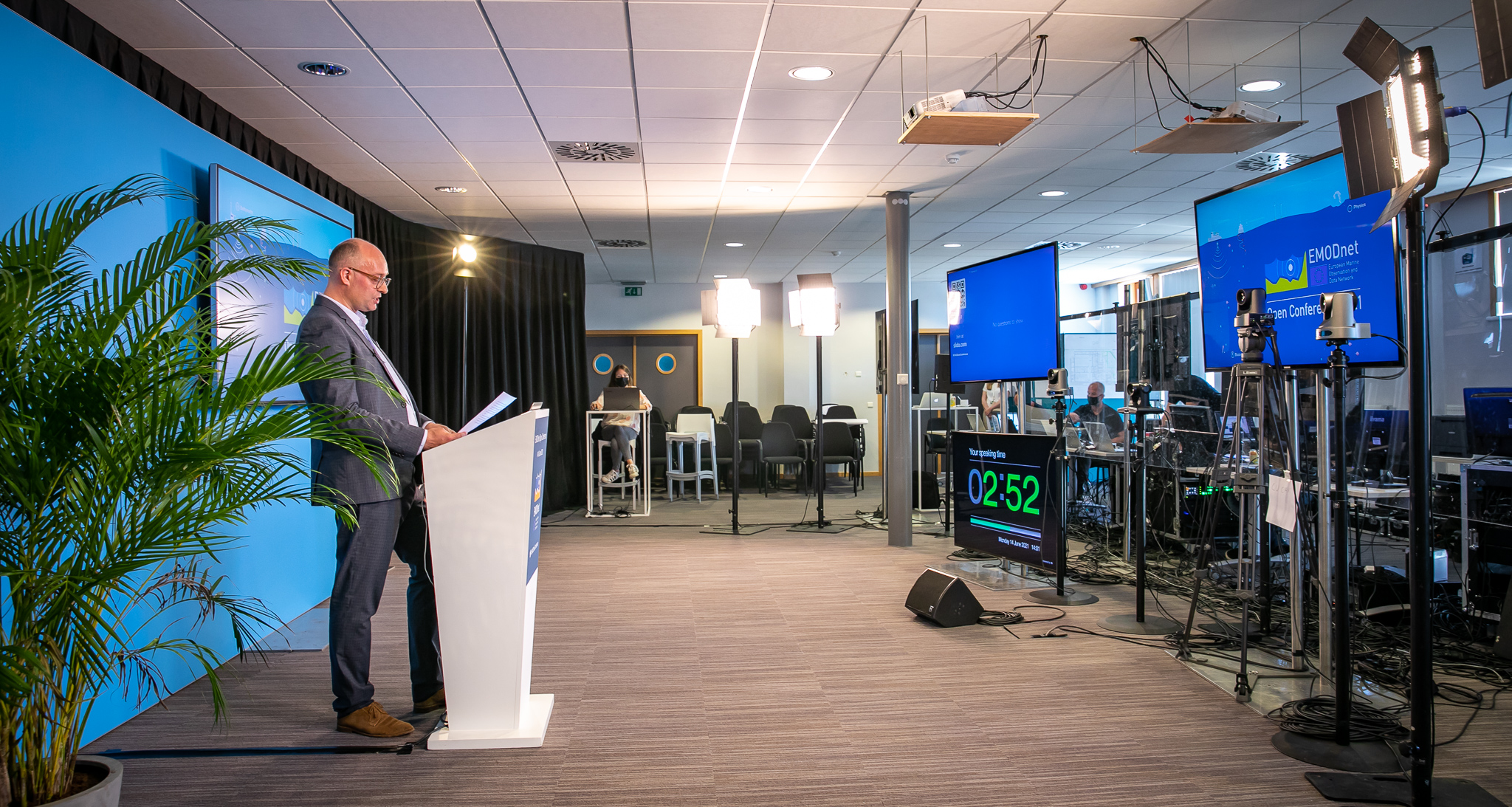
©Dirk Leemans
Building on these opening speeches, the first session on EMODnet achievements brought together all EMODnet Coordinators from the seven thematic assembly groups and the EMODnet data ingestion facility, for a showcase on EMODnet outputs and the high number of diverse and high quality integrated data sets and added value data products and services developed by the EMODnet partners over the last 10 years. The EMODnet for users session kicked off with a keynote from Claire Jolly, Organisation for Economic Cooperation and Development (OECD), addressing the positive impacts of open data and on how making data accessible stimulates innovation and productivity. The rest of the session included a wide range of stakeholders presenting concrete and insightful examples of how EMODnet is being used in industry, research, policy and in civil society.
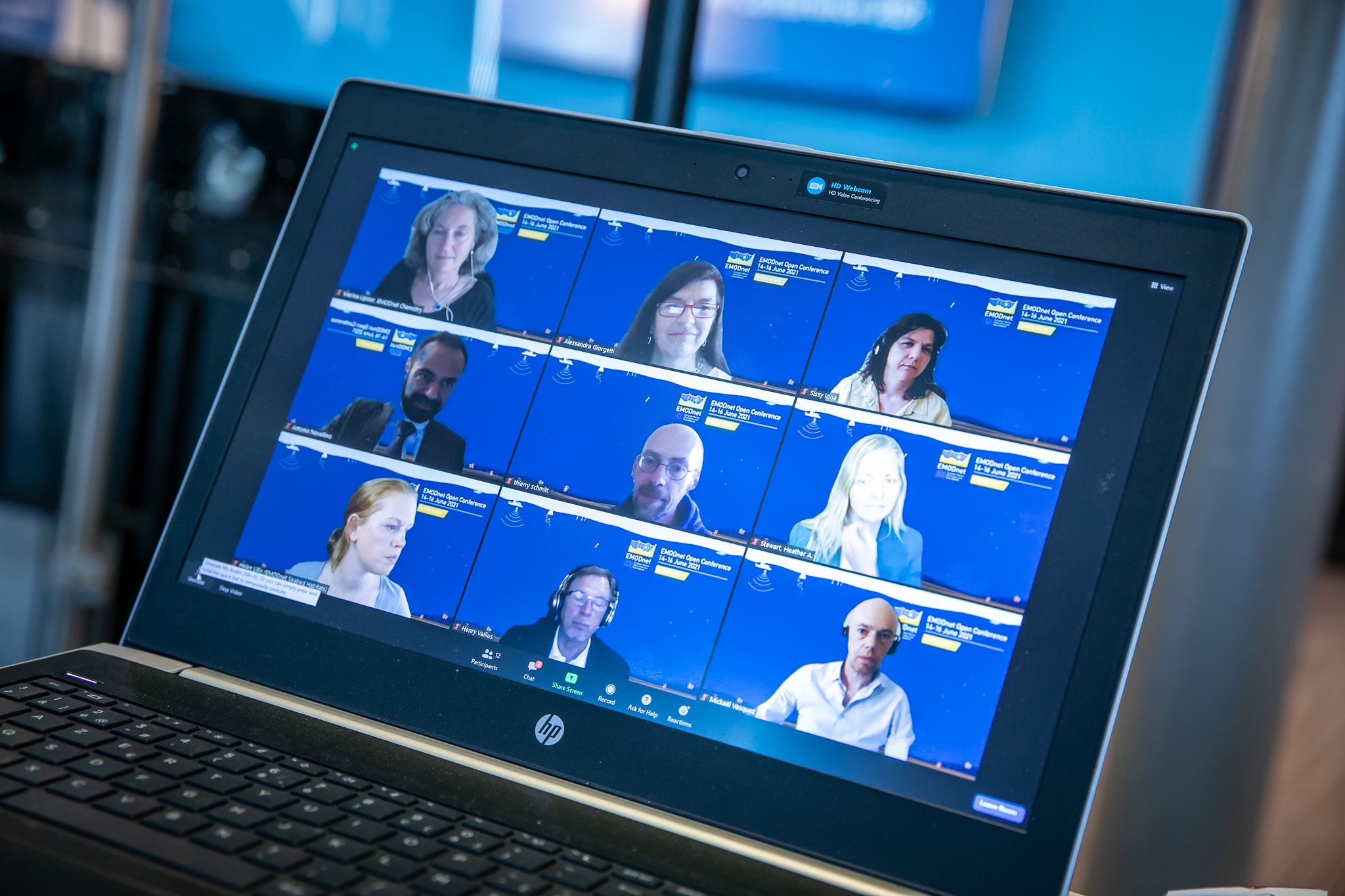
©Dirk Leemans
Day two of the Conference celebrated existing partnerships, such as the key collaboration with Copernicus Marine Service, a complimentary long-term EU marine data service with strong operational and coordination, and wider European collaborators from across the full marine knowledge value chain. Following the official launch of the UN Decade of Ocean Science for Sustainable Development on 1 June 2021, a session was dedicated to EMODnet’s expanding global partnerships, with keynote talks by Vladimir Ryabinin, Executive Secretary of the Intergovernmental Oceanographic Commission (IOC) of UNESCO, and by Peter Pissierssens, Head of the IOC Project Office for the International Oceanographic Data and Information Exchange (IODE). You can read more about EMODnet's contribution to the UN Ocean Decade in a special edition of the ECO magazine.
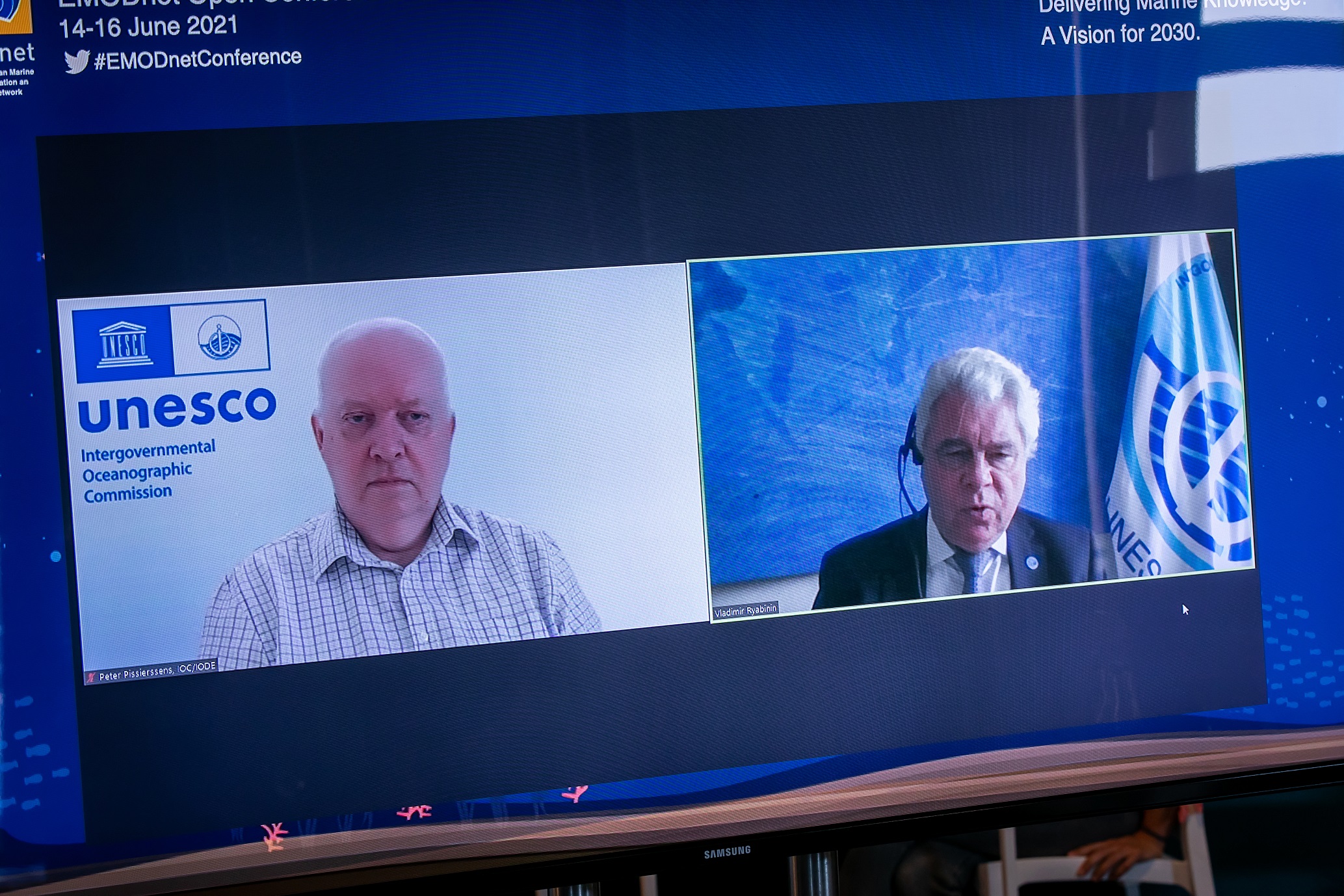
©Dirk Leemans
In the global community talks that followed, Jamie McMichael-Phillips, CEO for the Nippon Foundation-GEBCO-Seabed 2030 initiative, noted that EMODnet is the third largest contributor of bathymetry data to Seabed 2030 worldwide, a project that aim to produce the definitive map of the world ocean floor by 2030, making data available to all. Moreover, EMODnet’s ongoing success with the EMODnet Partnership for China and Europe (EMOD-PACE) served as inspiration for discussing potential future regional collaborations e.g., expanding the EU China partnerships across Asia, and building on emerging partnerships with Russia, Canada and wider countries bordering the Arctic, as well as connecting North Atlantic efforts to those in the South Atlantic, e.g. with South Africa.
Building on plenary presentations, panel discussions and community poster pitches, the Conference breakout discussions brought together the wider community to discuss how EMODnet’s services can evolve into the next decade to2030, across three key themes: (i) EMODnet for the EU Green Deal; (ii) EMODnet for Global; and (iii) EMODnet in the Digital era. The key messages from these discussions have been summarised into visual graphics that are accessible on the event virtual exhibition.
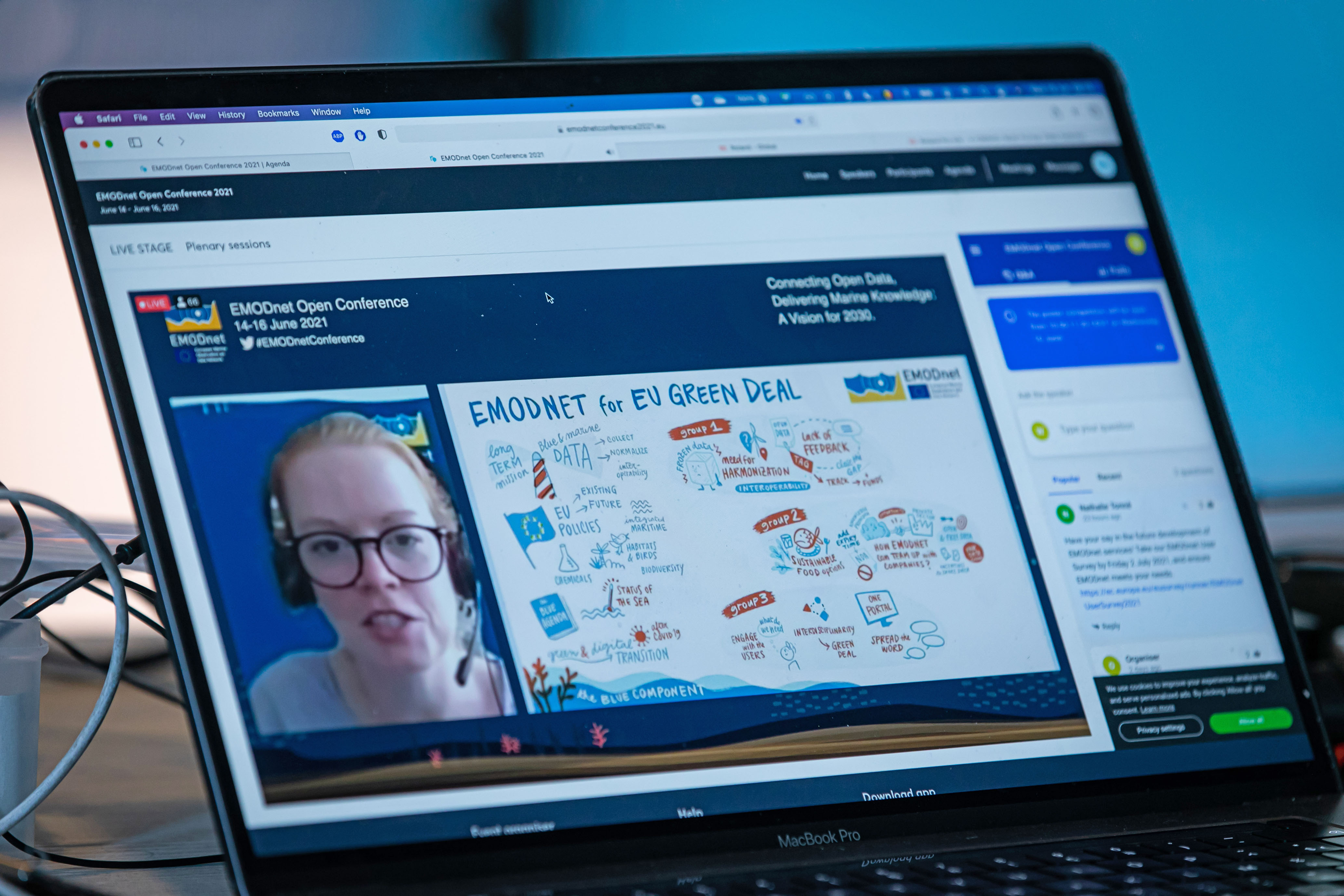
©Dirk Leemans
The last day of the EMODnet Open Conference included a session on connecting across the marine knowledge value chain, with a spotlight on the diverse in situ data collection efforts across Europe, with a keynote presentation on the EC Ocean Observation – Sharing Responsibility initiative, by Zoi Konstantinou, European Commission DG MARE, followed by community presentations which included the EMODnet Sea-basin Checkpoints as a key user-driven methodology for assessing Ocean Observing gaps and requirements, together with national efforts to further strengthen and coordinate existing ocean observation and marine monitoring efforts.
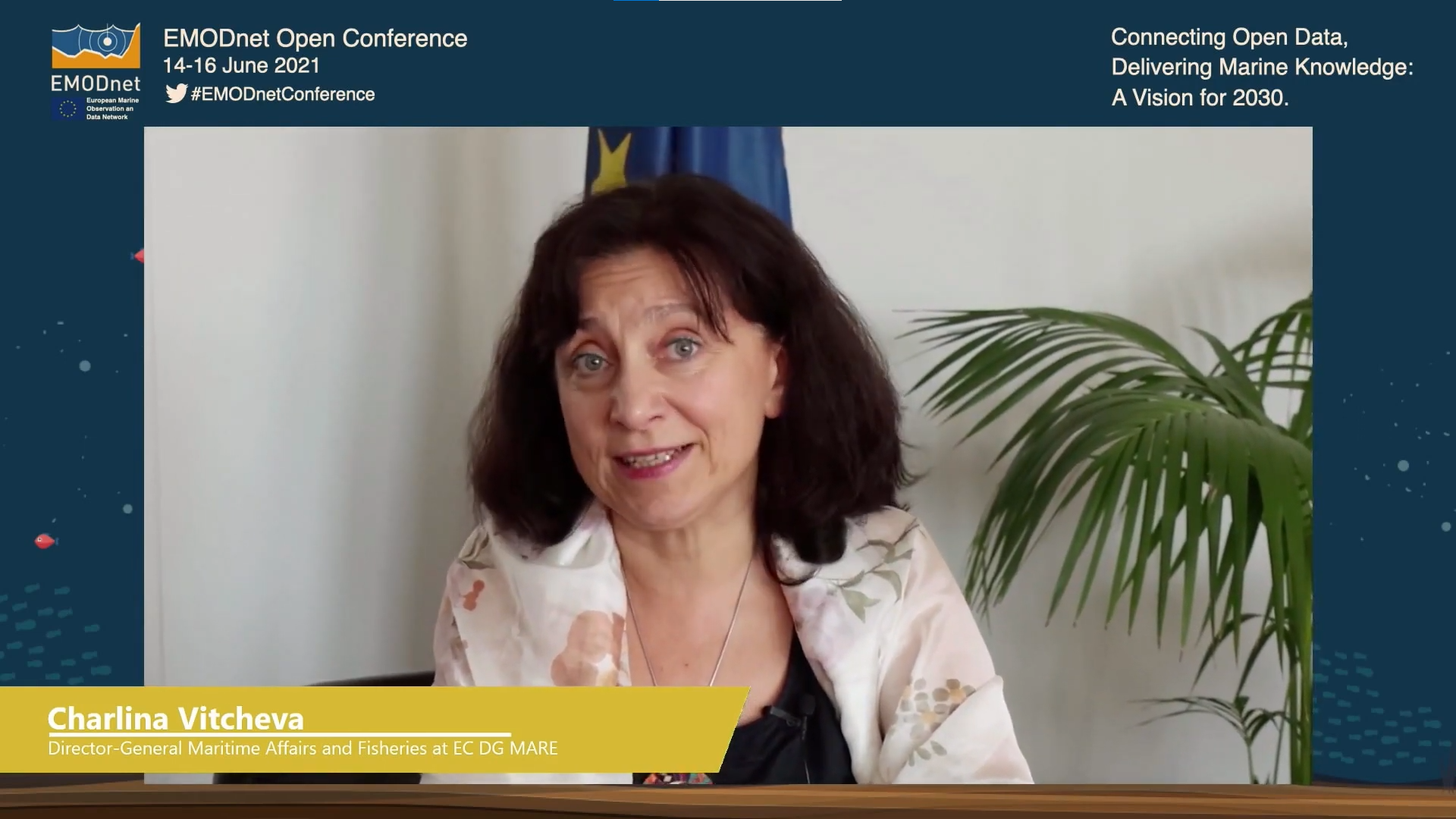
©Tipik
In her closing speech, Charlina Vitcheva, Director-General for Maritime Affairs and Fisheries of the European Commission, noted that “We now need to consolidate all the achievements and new ideas, all the valuable input received and move forward, pursuing higher goals. [….] The future that the Commission envisages is bringing forward innovative technological tools like the Digital Twin of the Ocean and the elaborate system models of Destination Earth. [….] EMODnet together with Copernicus Marine and other European Commission assets will be at the forefront of these developments”.
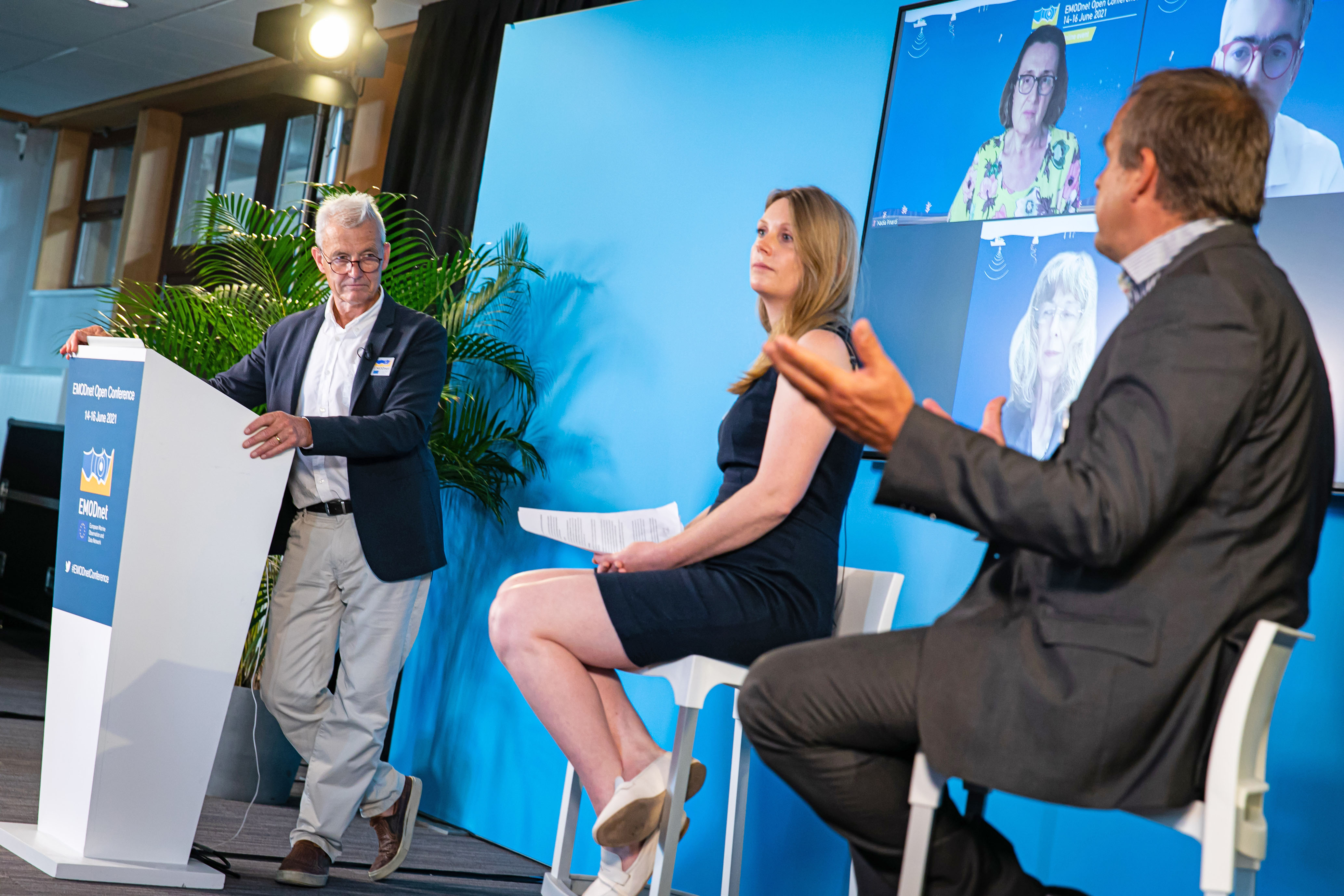
©Dirk Leemans
Concluding the Conference, a round-table of experts addressed how EMODnet will evolve into the future, and priority areas for the next decade. Kate Larkin, Deputy Head of the EMODnet Secretariat, noted that “EMODnet will look, feel and operate differently over the coming years, consolidating the existing capability and strengthening user-focused services, in collaboration with the Copernicus Marine Service, whilst further expanding the data parameters and the sources of data to include more diverse knowledge sources e.g., citizen science.” She also noted that metadata – the information paired to data to track the provenance of data from data collection to user - would be an increasingly important focus for EMODnet, to ensure EMODnet’s services – in collaboration with Copernicus Marine Service – continue to move towards achieving full interoperability and transparency for easy discovery, access and use of marine data, by all and for all. Key evolution steps outlined included:
- The repatriation of the EMODnet Central Portal to become fully embedded into the EU domain – this process is in its final testing phase and soon will be launching the new URL – with a distinct EU look and feel. This also shows the engagement of the EC for EMODnet as a long-term trustworthy service;
- The centralisation of EMODnet services, simplifying access to data and products through one single central data portal. This has already begun and when completed by early 2023 will be a game changer for the user as it will integrate all the access, download and visualization services;
- Interoperability and versatility of EMODnet data, data products and services: EMODnet will continue to share best practice and expertise in data and metadata standards, working with others at European and global levels to further progress in the area of interoperability so that EMODnet data and services are truly Findable, Accessible, Interoperable and Reusable (FAIR) for users worldwide ;
- Consolidation and expansion of EMODnet’s marine data services, which will be guided by societal priorities identified by the EU Green Deal and data requirements to support the green transition of the Blue Economy and wider society, together with playing a key role – in collaboration with the Copernicus Marine Service – for the digital transformation in Europe and worldwide, as a key contributor to achieving a transparent and accessible Ocean with open and interoperable access to marine data, information and services in a global context marked by the UN Decade of Ocean Science for Sustainable Development.
Additional information
The EMODnet Open Conference 2021 was hosted by the EMODnet Partnership and the European Commission’s Directorate General for Maritime Affairs and Fisheries, in collaboration with the Flanders Marine Institute (VLIZ).
All sessions recordings are now available at www.emodnetconference2021.eu under the tab “agenda”. Our conference platform and all its content (the programme, book of poster abstracts, community poster pitches and the conference virtual exhibition) will remain open until October 2021.
A Conference report will be made available during Summer 2021, as well as a conference summary video. All the conference outcomes, including the speakers’ slides, video recordings, summary video and report, will be accessible on the EMODnet Central Portal.
For more information on the EMODnet Open Conference 2021, you can also consult Twitter with the hashtag #EMODnetConference
Source and information
Francis Strobbe
Communication and Data Officer
European Marine Observation and Data Network (EMODnet) Secretariat
Email: secretariat@emodnet.ec.europa.eu
